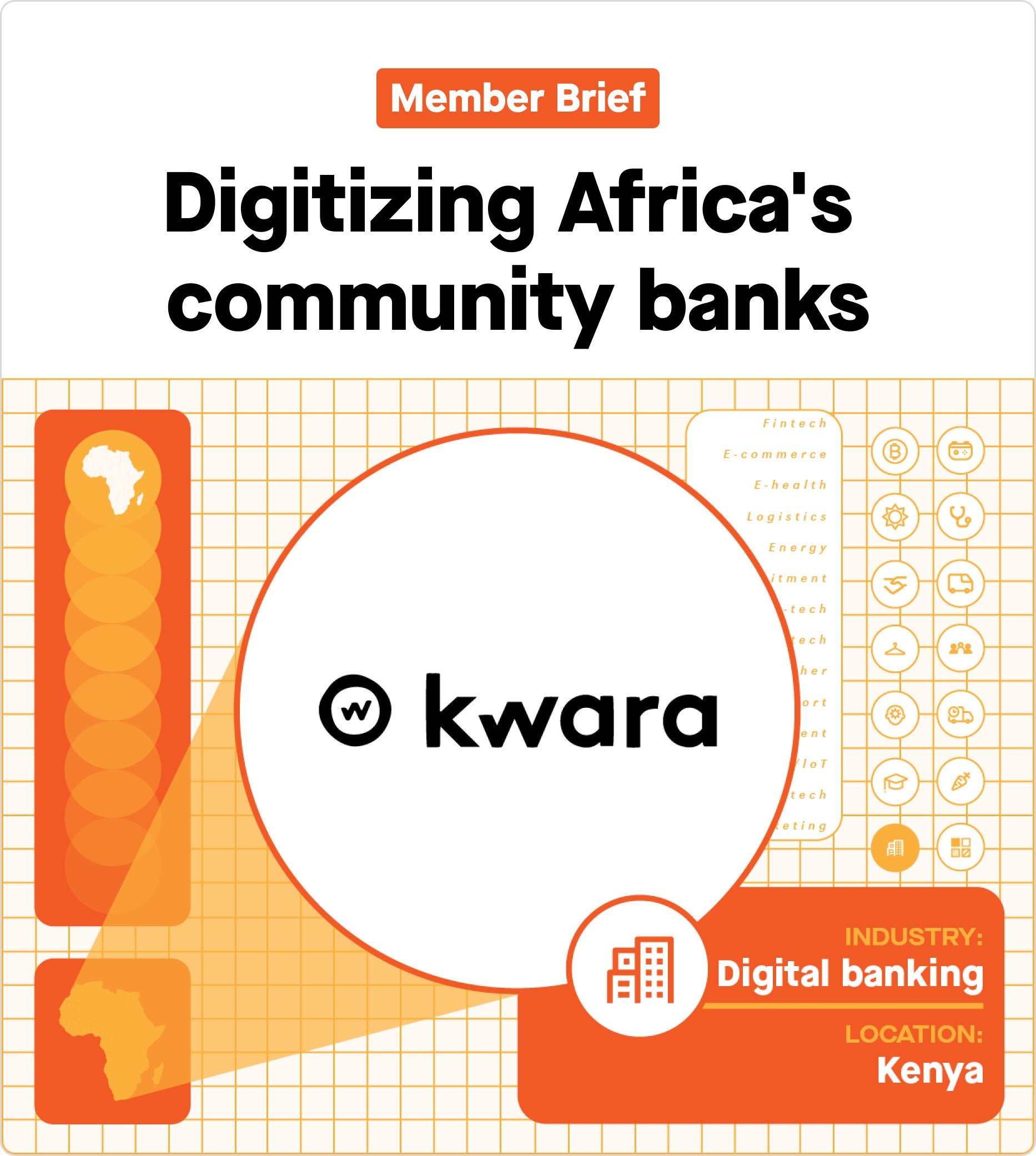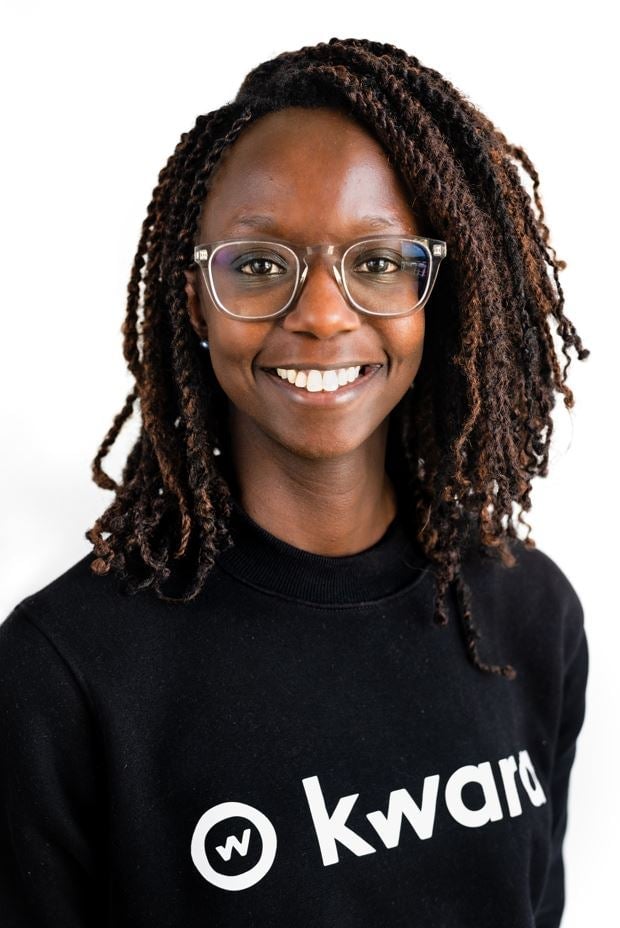Digitizing Africa's community banks
Fintechs enable SACCOs to offer faster, better, secure services


Dear Quartz Africa members,
The impact of community banking in Africa cannot be underestimated.
Formal banking services still have not reached many on the continent. It is estimated that about 360 million adults (pdf) in the region do not have access to any form of bank account.
Where traditional banking services have failed to reach the masses, groups of people have come together to form community banks—Savings and Credit Cooperative Organizations, or SACCOs—across Africa.
A SACCO is a member-based financial institution where communities pool their savings together. These savings are used to offer loans to members, which are typically more affordable and attractive than those from traditional banks, given that SACCOs are not-for-profit.
Governed, owned, and managed by their members, SACCOs are one of the most trusted financial service providers, according to surveys. They have brought financial services to millions of households where no such services were previously available.
While the SACCO market is already big in Africa, it is continuing to grow. As of 2020, the continent has over 40,000 registered SACCOs, with more than 40 million members.
For a long time, these organizations have been run in analog fashion. Forms needed to be filled, physical records had to be kept, and communication was conducted in person at the office. The inefficiencies of these operations led to higher overhead costs for members and also made it harder for people to access financial services.
In response, Africa’s entrepreneurs are jumping on opportunities to digitize the SACCO sector. Fintech companies are enabling SACCOs to offer faster, better, and more secure services, through being accessible 24/7 and facilitating paperless transactions. They also allow SACCOs to streamline operations, cut costs, and compete with digital lenders.
The digital shift for SACCOs is crucial if they are to keep growing across Africa.
Cheat sheet:
💡 The opportunity: With over 40 million savings and credit cooperative organizations (SACCO) members on the continent, fintech has a huge opportunity to digitize the industry.
🤔 The challenge: Technology comes at a cost, and smaller SACCOs may not be able to afford the high prices that cover the cost of cloud computing and real-time transactions.
🌍 The roadmap: Digitizing operations in the back office of SACCOs is the first step, followed by enabling 24/7 transactions for their members from wherever they are. This leads to digitized payments, remittances, and investments, as well as faster lending with better credit scoring and credit information sharing.
💰 The stakeholders: SACCOs themselves and their members, regulatory bodies, trade, and agricultural unions, and other players in the financial sector that want to offer supplementary products to credit union members.
40,570: The number of credit unions in Africa
39: The average age of membership in a SACCO
$17.58 billion: Total savings and shares in Africa’s SACCOs
41%: The percentage of women that make up Africa’s SACCOs membership
$16 billion: The amount of assets Africa’s credit unions are holding
The case study
Name: Kwara
HQ: Nairobi, Kenya
Founder: Cynthia Wandia
Launched in 2019, Kwara is a digital banking platform for SACCOs, and brings mobile banking to their members through a mobile app or USSD— a telecommunication technology which is usually menu-based and involves sending text back and forth between a mobile phone and an application through the mobile networks.
The platform allows SACCO members digital access to a number of financial services that previously would have required in-person interaction. Members are now able to view and download their financial statements, apply for instant loans, and make repayments through their phone or the web.
Through the Kwara dashboard, SACCOs are able to run a modern banking business, where they can register new members through a quick online process, manage their deposits and savings accurately, access credit decisioning, and be compliant with regulatory requirements.
While a member application process could have previously taken a week, Kwara’s automated operations have reduced that down to 15 minutes. Similarly, as Kwara processes all historical financial historical of SACCO members, loan processing times have been cut down from several hours to minutes.
These time savings translate into direct cost savings, allowing SACCOs to focus their resources on offering members innovative financial products and providing better customer service.
In 2021, Kwara raised $4 million in a seed round from Breega and the SoftBank Vision Fund Emerge to build a neobank app enabling members of credit unions to access various financial services. The app uses an API which connects SACCOs to the rest of the formal financial ecosystem, whereby third party services can plug into Kwara to offer additional products and services.
While Kwara’s biggest market remains in Kenya, with 100+ SACCO clients, the company also works with a number of SACCOs in South Africa and the Philippines, with plans to expand to more countries.
In conversation with Cynthia Wandia

💪On her grandmother’s influence in her starting Kwara
“She worked as a small scale coffee farmer in Kenya until she was 92 years old. She was widowed young and left with nine children to look after. It was only through a SACCO that she could take care of her family, maintain the farm, and retire with dividends. The institution provided her with a way to survive and thrive, so I wanted to make SACCOs more effective through technology so they could reach many more people—and that was how we founded Kwara.”
📈 On the cost-of-living crisis
“The way that SACCOs reacted during the covid-19 pandemic shows how critical they will be in this next economic environment. They were quick to offer moratoriums on credit for members if you lost your job or your business was not operating. SACCO members had access to financial safety nets and a level of resilience that was not available to everyone.”
💸 On the growth of fintech in Africa
“Every time a startup picks a certain sliver of the economy and works to digitize it, it makes it easier for either an adjacent startup or a subsequent one. I think it is complementary because nobody can solve everything at once.”
Other fintech deals to watch:
Last month, Côte d’Ivoire-based fintech startup, Bizao, which facilitates the processing of end-to-end payment flows to and from the main digital payment systems in Africa, raised €8 million in a series A funding.
In July, Senegalese-US fintech Wave, which offers mobile money services, secured a €90 million ($90 million) syndicated loan from the International Finance Corporation (IFC), the investment arm of the World Bank, and other sources.
Xend Finance, a Nigerian fintech startup, is another company applying decentralized finance to credit unions. The startup has so far raised $2 million from investors including Binance Labs, Google Developers Launchpad, and AU21 Capital.
🎵 This brief was produced while listening to “Mwambieni” by Zuchu (Tanzania)
Have a highly motivated rest of your week,
—Priya Sippy, Quartz Africa contributor based in London
One 🇰🇪 thing
In 2021, Kwara formed a partnership with Lami Technologies, an insurance technology company, founded by fellow female Kenyan entrepreneur, Jihan Abass. The partnership allows SACCO members to access a range of insurance products from life to business to property coverage.